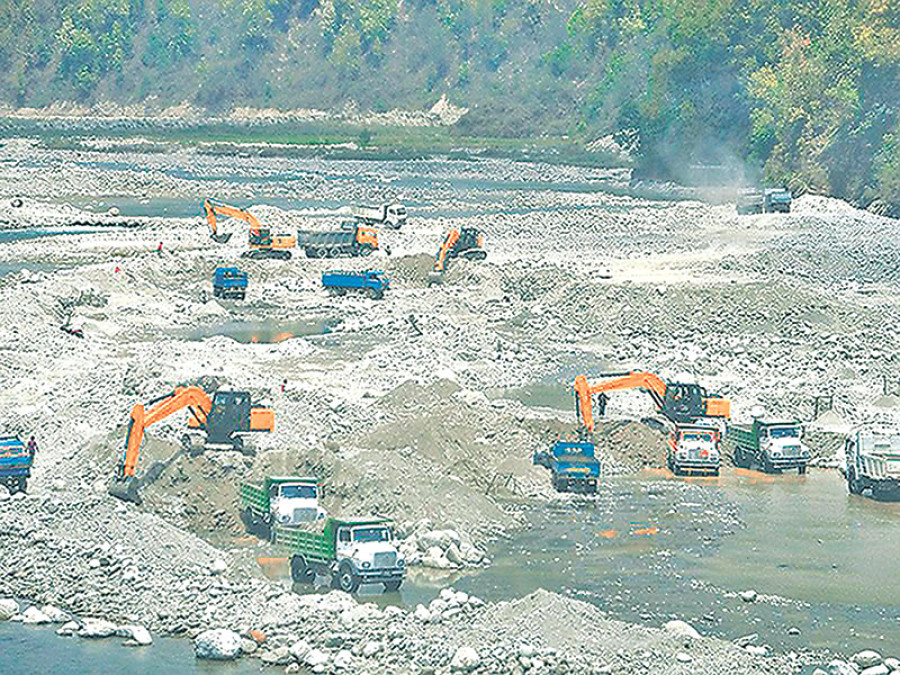Money
Riverbed goes down due to constant sand mining
So much sand and pebbles have been gouged out of the Agra River in Thakre Rural Municipality that the riverbed has gone down by 5 metres in the last 45 years. The Agra flows along the Prithvi Highway, and the sand and pebbles used to black top the road were extracted from the bottom of the river.
Harihar Singh Rathore
So much sand and pebbles have been gouged out of the Agra River in Thakre Rural Municipality that the riverbed has gone down by 5 metres in the last 45 years. The Agra flows along the Prithvi Highway, and the sand and pebbles used to black top the road were extracted from the bottom of the river.
Road contractors found the riverbed materials from the Agra to be of high quality, and it became the preferred source for sand and pebbles for other projects too. So they kept digging up the bottom of the Agra River until it sank.
Local Ram Chandra Rupakheti said, “Labourers from 28 districts across the country arrived here about 45 years ago. They have lived here for three generations as demand for stones from the river has kept rising.” No electrical equipment was available at that time, so labourers collected stones from the riverbank and crushed them with hammers, and a contractor shipped the crushed stones to Kathmandu.
“The practice is still continuing. Around 5,000 labourers collect stones and sell them to tractor owners or crush them by themselves,” said Rupakheti.
A crusher entrepreneur Hari Kapri from the Junge River said, “As quality stones from the Agrakhola gained a reputation as far as the capital, labourers did not leave the site even after the highway was black topped because demand remained high.”
The construction boom in Kathmandu meant there was insatiable demand for stones and pebbles, and alarmed at the rate the river’s resources were being depleted, the District Development Committee set a daily extraction limit of 250 cubic metres, or about 63 tractor-loads.
However, the rule is openly flouted, and tractor owners have been digging up more than 4,800 cubic metres of stones and pebbles daily.
“More than 20 crushing plants are engaged in extracting stones from the Agra River along the Prithvi Highway in the district,” said Tufel Ahmed of the Revenue Department of the District Coordination Committee. Black stones from the river are shipped to crushing firms in Mahadevbesi, Eklephat, 7 kilo, 9 kilo, Thatre and Jungekhola.
With 600-1,200 tractor-loads of stones being removed from the river daily, the water level has dropped by 3-5 metres. This has made it difficult for farmers to irrigate their fields.
Although tippers and tractors cannot be used to transport stones and excavators cannot be used to mine stones, transport operators and workers have formed a syndicate to extract riverbed materials at the Agra River. The river runs north from the Mahabharat Range adjoining Makwanpur. When the District Inspection Committee found out crushing plants were operating illegally, it cut off their power.
The District Traffic Office banned tax-exempt tractors intended to be used on farms from operating near the highway. The office also caught underage truck drivers and others without a driving licence.
Thatre Rural Municipality collects tens of millions of rupees in revenue from the stones extracted from the Agra River. Illegal extraction of riverbed materials is going on at the nearby Kolphu River adjoining Nuwakot district.




 9.6°C Kathmandu
9.6°C Kathmandu-(2).jpg)















